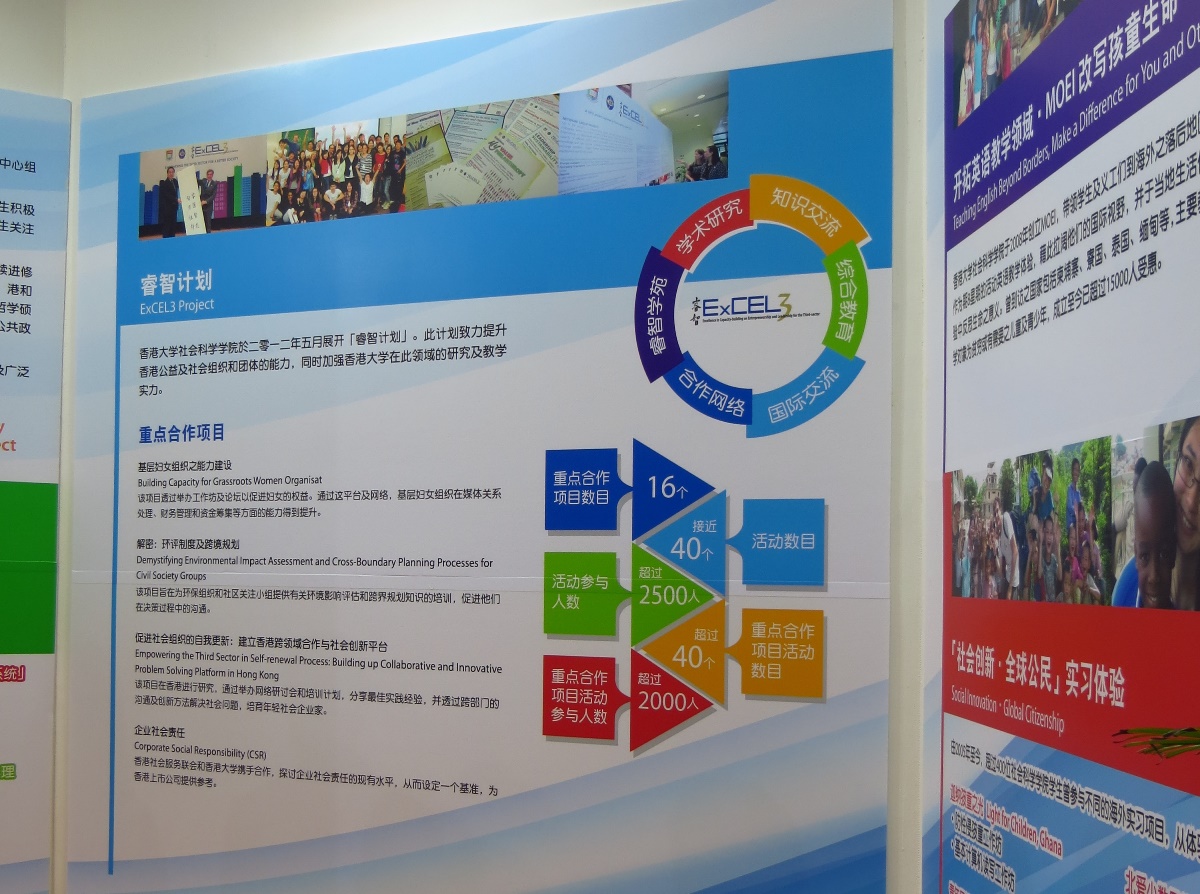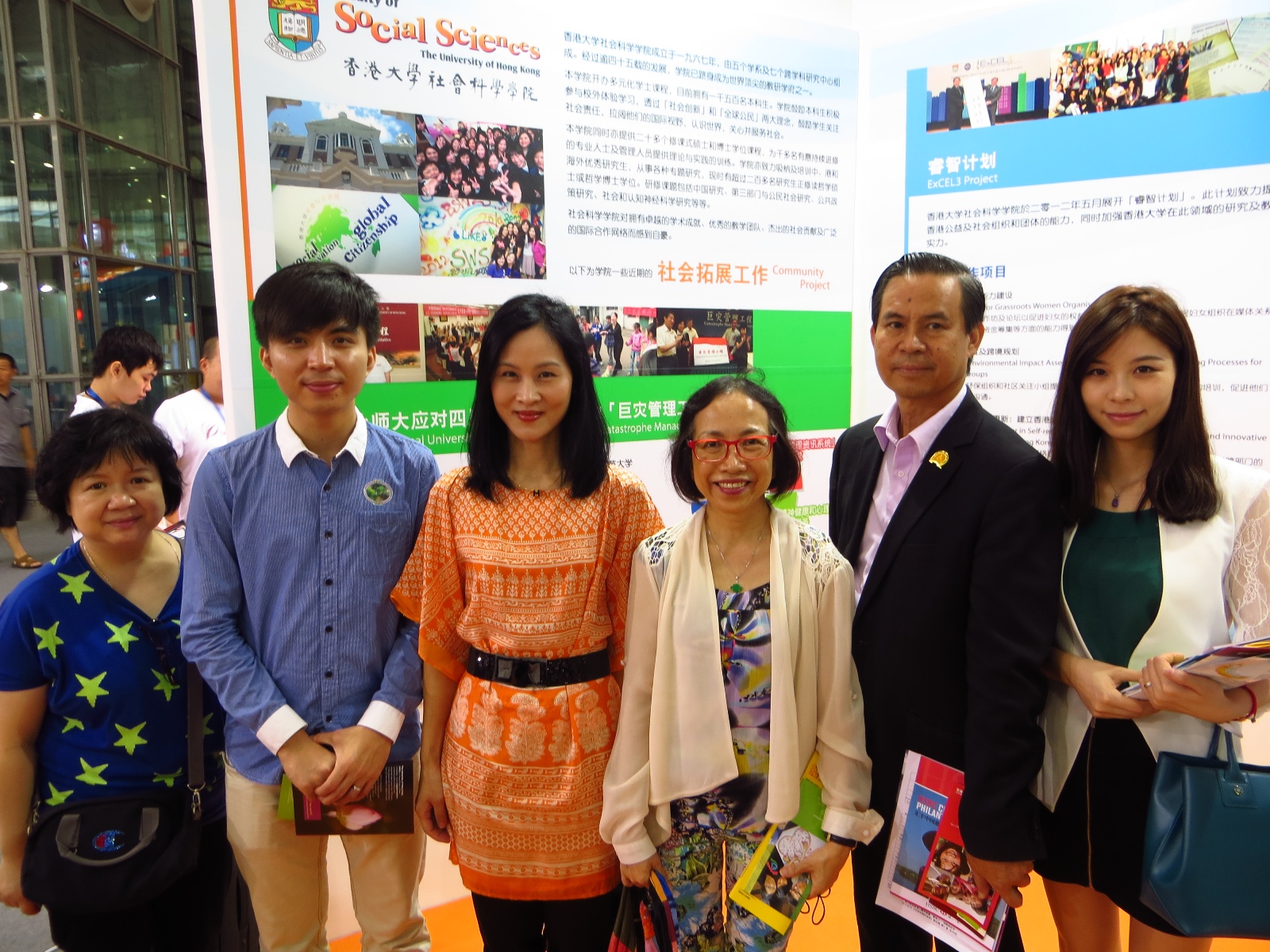 國際交流
國際交流
睿智計劃將積極參與海外國際會議,並安排傑出教授來港訪問,藉以交流他們在各地的研究成果,拓展雙方專屬領域的知識。
第二屆中國公益慈善項目交流展示會 (2013年9月21至23日)
 |
 |
 |
中國公益慈善項目交流展示會(慈展會)由中華人民共和國民政部、國務院國有資產監督管理委員會、中華全國工商業聯合會、廣東省人民政府、深圳市人民政府共同主辦。從2012年開始,每年一屆在深圳經濟特區舉行。慈展會主要展示全國慈善公益項目成果,搭建慈善公益資源對接平台,助推慈善公益人才交流合作及推動慈善公益組織健康發展。
睿智團隊以參展單位身份參與了是次展示會。
|
|
|
2012年ARNOVA會議 (2012年11月15至17日)
2012年ARNOVA會議的主題是:「重新審視慈善事業:探索非牟利機構的基本概念」。在過去的四分之一世紀裡,許多慈善事業在理解和實踐上有著不少的變化,所以此議題是十分值得探討的。
睿智團隊參與了是次會議,我們的演講資料如下:
By: Ms Michele Wong and Dr David Palmer
Abstract: In recent years there has been growing interest in morality, values, and the translation of values into social action through faith-based organisations (FBOs). There has also been an emerging concept of spiritual capital as the latest iteration in a series of theories of capital that attempt to account for the range of values present or generated in society. Yet there are obvious research gaps in the understanding of FBOs and spiritual capital. To address these gaps and in response to the attention on values and faith, this presentation intends to investigate how FBOs generate and apply spiritual capital, and will employ case study research methodology to examine the worldwide Bahá’í Community to derive models of innovative and constructive applications of spiritual capital.
By: Professor Wai-Fung Lam, Dr Elaine Chan and Mrs Sihla Koop
Abstract: The paper, “Towards an Institutional Framework for New Philanthropy in Hong Kong: Policy Agenda Implications,” examines the development of Hong Kong’s philanthropic sector over the last decade in response to the changing political economy. Philanthropists in Hong Kong have long relied on nonprofits as agents for attaining the missions they desire. In recent years, however, some philanthropists have gone beyond writing cheques to support NGOs, instead resorting to a diverse array of institutional arrangements ranging from operating social enterprises to engaging in impact investing. While these innovative arrangements have attracted much attention in academic and practitioner’s circles, they have been largely treated as unique genres in policy research and discourse. That these seemingly different arrangements are in fact different institutional solutions to problematics involved in mobilizing and leveraging private resources for doing social good has been overlooked. Drawing upon an Institutional Analysis and Development (IAD) framework and using the case of a local commuinty interest company, Love Plus Hope, LLC., the paper argues that philanthropists have to cope with a number of problematics involved in the provision and production of doing good. Depending on particular political-economic contexts, problematics can appear in different forms and take on different degrees of importance; any change in the political-economic context not only affects the development and evolution of philanthropic institutions, but also the institutions’ effectiveness.
By: Dr Wang Xiao-Lu, Dr Sammy Fung and Professor Wai-Fung Lam
Abstract: The global economic downturn and ensuing challenges to the nonprofit sector in recent years call for more accountability and better board governance. Using a systematic review approach, we attempt to take stock of research on governing effectiveness of nonprofit boards of the past 10 years. The databases used in the study were those included in the ISI Web of Knowledge—SCI-EXPANDED, SSCI, A&HCI, CPCI-S, CPCI-SSH. Search terms were nonprofits, boards and effectiveness and their derivatives. 120 peer-reviewed journal articles were reviewed and coded. Findings were synthesized and reported in terms of research questions. Inconsistencies in the findings were identified. Implications of a holistic review of nonprofit accountability and more research on internal team process in the boardroom are drawn.
By: Professor Cecilia L W Chan, Dr Xue Bai, Dr Ben M F Law and Ms Elsie M H Chien
In the patient self-help movement, it is common for persons living with a chronic illness or disability to help their fellowmen with the aims of better adjustment to diagnosis, treatment, rehabilitation and palliation. The patients who serve as volunteers in the self-help movement are confronted by several paradoxes when they are involved in the helping process.
Those paradoxes are:
(1) Professionalism versus Intuition,
(2) Rehabilitation versus Deterioration,
(3) Compliance versus Confrontation,
(4) Personal Gain versus Collective Values, and
(5) Leader Role versus Member Role.
When these paradoxes are not resolved, patient care is not optimal and the development of the organization is also affected. The development of the Alliance of Patients’ Mutual Help Organizations in the past twenty years will be used as a case study to critically discuss the paradox of participation.
By: Dr Wang Xiao-Lu
Social enterprise has been promoted across the world as an innovative institutional solution to social issues. Nevertheless, social enterprise faces challenges arising from conflicting institutional logics, particularly in relation to its governance and management. This research proposal is an attempt to provide information about social enterprise in Hong Kong through two case studies. Challenges for social enterprise and its governance and management solutions will be contextualized and discussed through comparing two social enterprise initiatives by a large NGO and a small NGO in Hong Kong. The study will advance knowledge on social enterprise landscape and innovative solutions to competing logics.
 主頁
主頁
 訂閱
訂閱
 聯絡
聯絡
 搜尋
搜尋



